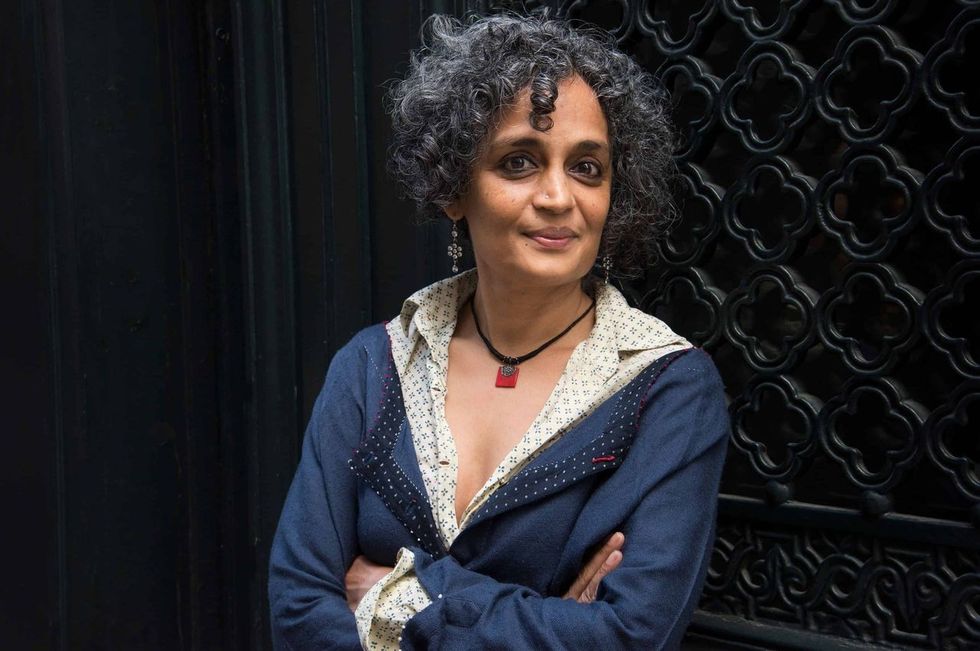By Amit Roy
THE Cass Business School in London has made a serious error of judgement in agreeing to change its name, just as Oriel College, Oxford, has in giving in to the anti-racist lobby and announcing the statue of its imperialist benefactor, Cecil Rhodes, will be removed.
The dilemma for many British institutions, as they seek to put right the sins of their forefathers, is that the nation’s history is full of bad men who also did many good things.
Back in India there have been similar moves to eradicate traces of Mughal and Muslim rule by extremist Hindus of the kind who demolished the Babri Masjid in Ayodhya in December 1992.
Acting allegedly with the moral support of Black Lives Matter, their spiritual cousins pulled down the statue of slave trader Edward Colston in Bristol.
The same kind of folk want Gandhi’s statue removed in Leicester and have daubed the Mahatma’s monument and that of Winston Churchill in Parliament Square in London with anti-racist graffiti.
Changing the name of Cass Business School is a crazy idea. According to the Financial Times, it is ranked second in London (after the London Business School), fifth in the UK and among the top 15 globally.
Apurv Bagri, who is president and CEO of the metals group, Metdist, is not only chairman of governors at London Business School but also a visiting professor and honorary rector at Cass Business School, where he dons academic robes on graduation day.
“Education is changing and changing quite rapidly,” he told me a couple of years ago. “You have so many business schools seeking to deliver some or part of their education in the form of online programmes. But a business school is a meeting place for academics and students who are curious. So there will always be a very important role for global business schools.”
And this week, Apurv did not seem wildly enthusiastic about the name change.
“The Cass foundation has done excellent work over many years, so the change in their name is, at one level, disappointing. It is though also a necessity, having regard to the reality of today and the way in which history is being carefully re-evaluated.
“Changing the name of Cass Business School is therefore by extension a necessary part of that process, even though it is, of course, regrettable.”
The business school is named after Sir John Cass (1661-1718), who was a merchant, politician and sheriff of London, but who also helped establish the slave trade across the Atlantic.
In 1748, Cass founded an educational charity, the Sir John Cass Foundation, which still exists to this day and provides education for disadvantaged youth across London.
The business school which bears his name is one of the five schools which come under City University of London. In 2002, it was named the Sir John Cass Business School – shortened to the Cass Business School – after receiving a donation from the foundation.
The change of name was announced by Julia Palca, chair of City University’s council, who said: “We acknowledge the great pain and hurt caused to members of our city and business school community, and to many black people by the association of the school’s name with the slave trade.
“Any continued use of Sir John Cass’s name would be seen as condoning someone whose wealth in part derived from the exploitation of slavery. This is incompatible with our values of diversity and inclusivity. We have therefore taken the decision to remove the name.”
The reasoning for the change of name is unconvincing. A few years ago, I attended a graduation ceremony at Cass where many black students appeared delighted as they received their degrees, with proud parents looking on. None looked offended to be graduating from Cass. Quite the opposite, in fact.
Changing the name or removing statues is meaningless and dangerous gesture politics. It should be resisted. Improving the lot of Britain’s BAME communities is altogether more complicated, starting with ensuring children do well at school and are brought up by caring parents.





 LONDON, ENGLAND - JUNE 22: Baroness Floella Benjamin speaks during the unveiling of the National Windrush Monument at Waterloo Station on June 22, 2022 in London, England. The photograph in the background is by Howard Grey. (Photo by John Sibley - WPA Pool/Getty Images)
LONDON, ENGLAND - JUNE 22: Baroness Floella Benjamin speaks during the unveiling of the National Windrush Monument at Waterloo Station on June 22, 2022 in London, England. The photograph in the background is by Howard Grey. (Photo by John Sibley - WPA Pool/Getty Images)









 Ed Sheeran and Arijit Singh
Ed Sheeran and Arijit Singh Aziz Ansari’s Hollywood comedy ‘Good Fortune’
Aziz Ansari’s Hollywood comedy ‘Good Fortune’ Punjabi cinema’s power-packed star cast returns in ‘Sarbala Ji’
Punjabi cinema’s power-packed star cast returns in ‘Sarbala Ji’ Mahira Khan
Mahira Khan ‘Housefull 5’ proves Bollywood is trolling its own audience
‘Housefull 5’ proves Bollywood is trolling its own audience Brilliant indie film ‘Chidiya’
Brilliant indie film ‘Chidiya’  John Abraham
John Abraham Hina Khan and her long-term partner Rocky Jaiswal
Hina Khan and her long-term partner Rocky Jaiswal  Shanaya Kapoor's troubled debut
Shanaya Kapoor's troubled debut Sana Yousuf
Sana Yousuf



 Shraddha Jain
Shraddha Jain Arundhati Roy
Arundhati Roy William Dalrymple and Onjali Q Rauf
William Dalrymple and Onjali Q Rauf Ravie Dubey and Sargun Mehta
Ravie Dubey and Sargun Mehta Money Back Guarantee
Money Back Guarantee Homebound
Homebound Guru Dutt in Chaudhvin Ka Chand
Guru Dutt in Chaudhvin Ka Chand Sarita Choudhury
Sarita Choudhury Detective Sherdi
Detective Sherdi